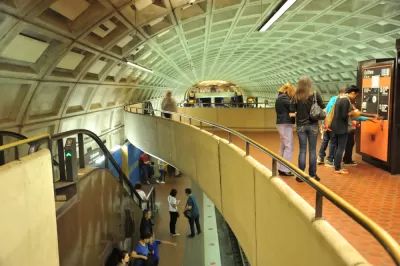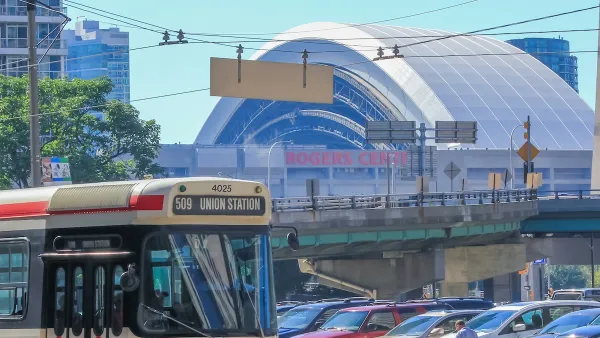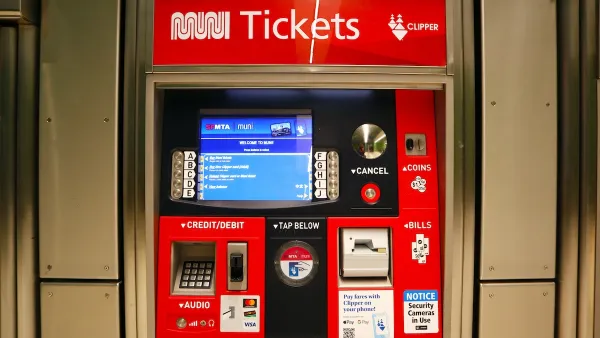The D.C. transit agency plans to increase service in the hopes of boosting lagging ridership and avoiding layoffs and service disruptions.

The Washington Metro announced plans for “a return to normalcy” with its draft budget, reports Justin George for the Washington Post. The agency plans to make improvements to train service while raising fares an average of 5 percent, with fare discounts for income-qualified riders.
“Transit officials say the $2.3 billion budget plan responds to trends that have emerged during the pandemic, but acknowledge the relatively rosy financial forecast will be short-lived without substantial growth in rail ridership.” According to George, “The spending plan avoids layoffs or significant service reductions with the help of federal infrastructure money that transit officials say can insulate Metro — for at least one year — from a harsh landscape for public transit.”
As part of the plan, the Yellow Line would stop operating north of Mount Vernon Square while service frequency would improve on other lines. The agency also plans to reinstate automated piloting, which it stopped using after a fatal 2009 collision. The autopilot system was later found not to have contributed to the crash. “If Metro receives permission from the Washington Metrorail Safety Commission, which monitors safety on the rail system, Metro plans to launch autopilot on the Red Line in spring with a goal of converting the entire system by the end of the year.”
FULL STORY: Metro proposes fare, service hikes while emerging from pandemic

Maui's Vacation Rental Debate Turns Ugly
Verbal attacks, misinformation campaigns and fistfights plague a high-stakes debate to convert thousands of vacation rentals into long-term housing.

Planetizen Federal Action Tracker
A weekly monitor of how Trump’s orders and actions are impacting planners and planning in America.

In Urban Planning, AI Prompting Could be the New Design Thinking
Creativity has long been key to great urban design. What if we see AI as our new creative partner?

King County Supportive Housing Program Offers Hope for Unhoused Residents
The county is taking a ‘Housing First’ approach that prioritizes getting people into housing, then offering wraparound supportive services.

Researchers Use AI to Get Clearer Picture of US Housing
Analysts are using artificial intelligence to supercharge their research by allowing them to comb through data faster. Though these AI tools can be error prone, they save time and housing researchers are optimistic about the future.

Making Shared Micromobility More Inclusive
Cities and shared mobility system operators can do more to include people with disabilities in planning and operations, per a new report.
Urban Design for Planners 1: Software Tools
This six-course series explores essential urban design concepts using open source software and equips planners with the tools they need to participate fully in the urban design process.
Planning for Universal Design
Learn the tools for implementing Universal Design in planning regulations.
planning NEXT
Appalachian Highlands Housing Partners
Mpact (founded as Rail~Volution)
City of Camden Redevelopment Agency
City of Astoria
City of Portland
City of Laramie





























